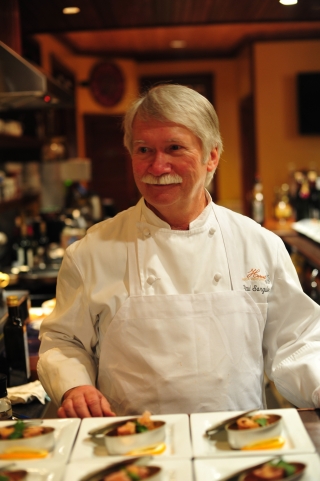
The Big Question of Training Competent Cooks
05 September 2023Finding time within programs to build students into competent cooks first.
By Paul Sorgule, MS, AAC
Feedback & comments: This email address is being protected from spambots. You need JavaScript enabled to view it.
What is our objective as culinary program administrators and educators? Have we taken the time to really think about this question? Are we training competent cooks? This includes building a portfolio of skills, exposing individuals to the industry of food and setting the stage for individuals to eventually become chefs or restaurateurs. Are we preparing students for that first job or paving the way for the eventual position of chef? Do we really think our objectives are all the above?
If we can clarify our answer to the first question, then what follows is even more challenging: How are we doing? If the age-old reality that people need to stand before they walk, walk before they run, and learn to run before the race is won – holds true, then doesn’t this define what our objectives should be?
Let’s start at the beginning and assess how effective we may be at training competent cooks. Skills are measured in terms of competence and confidence. Competence and confidence come from not just exposure, but rather repetition and measurement. Musicians become skilled through countless hours of practice and even after they reach competence, practice never ends. House painters become competent and confident after painting dozens of houses or interior rooms. Masons through decades of laying courses of brick or block, and electricians not by wiring a few outlets, but by wiring many homes from basement to second floor. Athletes master their discipline through intense workouts, years of physical conditioning, and playing in more games than they care to count. Yet, we (culinary educators) attempt to develop student skill sets through very limited exposure.
Young cooks will never become competent and confident with meat, poultry and fish fabrication by boning a few chickens, filleting a salmon or two, or attempting to break down one leg of veal. Competence and confidence will only come after that one hundredth chicken, salmon, or leg of veal. Knife skills will be polished only if they blaze through hundreds of pounds of carrots, onions, potatoes, celery, and zucchini; only fast and accurate with slicing mushrooms after dozens of cases have been attacked. Respectability at opening oysters or clams when they pop open their first thousandth of each. Yet, we attempt to do the impossible with very limited exposure while at the same time trying to get across what they will need to understand and accomplish in their pursuit of becoming a chef. Think about it!
A chef will never be able to help a line cook solve a specific challenge unless the chef has stood in the cook’s shoes and pushed through those hundreds of pounds of vegetables, made stocks every day, finished sauces on a regular basis for years, multi-tasked on a busy line and consistently prepared dozens of plates of perfectly executed food every night for a year or more. What is our objective, what are we trying to do, and how well are we actually doing it?
With our own life experience in the kitchen, we can successfully demonstrate any of these skills, walk through each step in preparing a classical dish, confidently pull up our bootstraps and work through a chaotic night on the line, and cook 50 steaks to exacting degrees of doneness. How do we pass on those acquired skills to others who lack time, repetition, and effective assessment to feel competent and confident?
Why am I presenting this case and what do I expect as an outcome? I am certain each person who holds the position of chef instructor or program administrator understands what I’m saying. Yet, we all point to the limitations imposed on us by the administration of a school or those who accredit programs. We respond by saying, “Yes, but we are constrained by curriculum, credit hours, facilities, class sizes, and time. There’s only so much we can do with all the roadblocks placed in our path.” I understand, I’ve been there. If teaching were easy then what fun would it be? Chefs’ love a challenge – the difficult we do right away and the impossible takes a bit longer – right?
This is the beginning of a new academic year. A fresh, eager group of students are finding their way to your classrooms and kitchens, faculty members are getting re-acquainted after a summer break, and the challenges of last year are still staring us in the face. We know all of this, but at the same time we know in our hearts students need to stand and walk before they run. They need to be very good at standing and walking before they put on those Air Jordans and start the marathon to the top. They crave the chance to be competent and feel confident and we are in control of helping them achieve this outcome. Let’s take some time, plenty of time, to look at what we do and how our programs might better reflect the ability to build skills and help students become competent cooks first. Everything else, in time, will begin to fall into place.
PLAN BETTER – TRAIN HARDER
Paul Sorgule, MS, AAC, president of Harvest America Ventures, a mobile restaurant incubator based in Saranac Lake, N.Y., is the former vice president of New England Culinary Institute and a former dean at Paul Smith’s College. Contact him at This email address is being protected from spambots. You need JavaScript enabled to view it..
